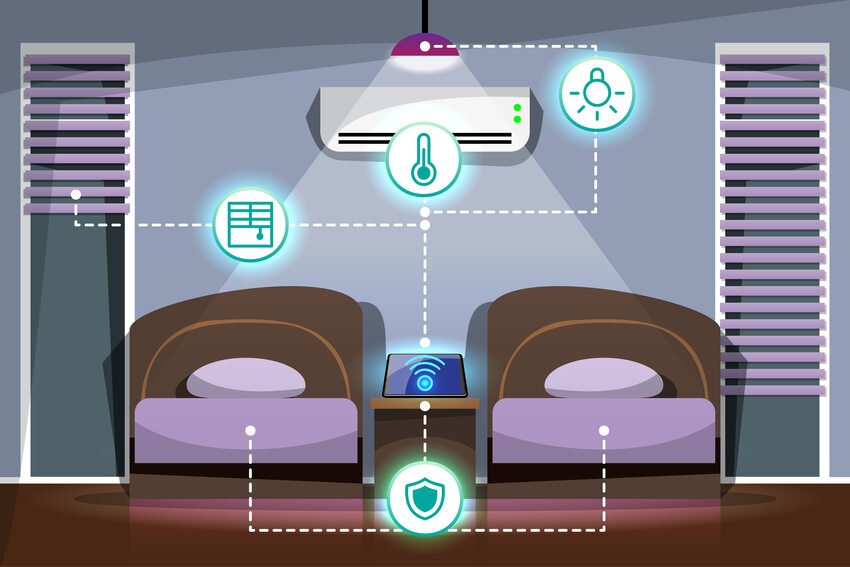Deductive skills are essential for making sound decisions, solving problems, and reasoning logically. Whether in personal relationships or professional environments, mastering these skills can significantly improve outcomes. Deductive reasoning starts with general principles or facts and uses them to arrive at specific conclusions. This article explores the importance of deductive skills and how to develop them for success in both life and work.
What Are Deductive Skills?
Deductive skills involve applying logic to derive conclusions based on established facts or premises. They are essential in evaluating arguments, identifying solutions, and making decisions. A classic example of deduction is:
-
All humans are mortal.
-
Socrates is human.
-
Therefore, Socrates is mortal. This logical process ensures conclusions are valid when premises are true.
Why Are Deductive Skills Important?
- Personal Success
Deductive skills help in analyzing situations and making informed decisions. They reduce impulsive reactions by encouraging thoughtful reasoning. For example, understanding the cause of a problem in relationships can prevent unnecessary conflicts.
- Professional Success
Deductive reasoning is crucial for solving workplace problems effectively. It helps in strategizing, evaluating risks, and analyzing data to make logical conclusions. For example, in business, analyzing market trends and applying general knowledge can guide specific strategies.
Advantages of Deductive Skills
- Improved Problem-Solving: Deductive skills enable quick identification of root causes and solutions.
- Better Decision-Making: Logical reasoning helps evaluate options and choose the most effective path.
- Enhanced Communication: Presenting logical arguments makes discussions more productive.
- Strategic Thinking: Deductive reasoning supports long-term planning and risk management.
How to Develop Deductive Skills
1. Practice Logical Thinking
Engage in puzzles, brainteasers, or logic games to strengthen your reasoning. Analyze arguments in everyday conversations to identify valid conclusions.
2. Understand Premises and Conclusions
Distinguish between general principles (premises) and specific outcomes (conclusions). Check if the premises support the conclusion logically.
3. Use Deductive Reasoning in Problem-Solving
Apply deductive reasoning in real-life situations, such as identifying patterns in data or solving conflicts. For example, if poor communication leads to errors, improving communication should reduce mistakes.
4. Learn from Examples
Study examples of deductive reasoning in books, case studies, or professional scenarios. For instance, legal arguments often use deductive reasoning to prove cases.
Deductive Skills in Personal Life
Decision-Making
Use deductive reasoning to weigh options and predict outcomes. For example, if a diet improves energy levels, continuing it should enhance health.
Conflict Resolution
Analyze the root cause of disagreements to find logical solutions. For example, if time management causes stress, reorganizing schedules can resolve conflicts.
Goal Setting
Deductive skills help in breaking long-term goals into actionable steps. For instance, if earning a degree requires studying, allocating study hours increases the likelihood of success.
Deductive Skills in the Workplace
Analyzing Data
Professionals use deductive reasoning to interpret data and draw actionable conclusions. For example, if sales drop due to poor marketing, improving campaigns should boost revenue.
Strategic Planning
Deductive skills guide decisions in business strategy by analyzing general trends. For instance, if remote work increases productivity, expanding remote roles can benefit the company.
Risk Assessment
Deductive reasoning identifies potential risks and formulates mitigation strategies. For example, if cybersecurity breaches occur due to outdated software, regular updates can prevent future attacks.
Common Challenges in Deductive Reasoning
False Premises
A conclusion is invalid if the premises are incorrect. For example, “All cats can fly. My pet is a cat. Therefore, my pet can fly” is logically flawed.
Overgeneralization
Drawing conclusions from insufficient premises leads to errors. Ensure premises are supported by reliable data before making deductions.
Emotional Bias
Emotions can cloud logical reasoning. Separate emotions from facts when using deductive skills to ensure objective conclusions.
Tools and Techniques to Enhance Deductive Skills
-
Mind Mapping: Visualize premises and their logical relationships.
-
Critical Thinking Exercises: Analyze assumptions and evaluate their validity.
-
Case Studies: Learn from real-world examples of logical reasoning in action.
-
Feedback Loops: Test conclusions and revise strategies based on outcomes.
Real-Life Examples of Deductive Reasoning
Healthcare field
Doctors use symptoms (premises) to diagnose illnesses (conclusions). For example:
-
Fever and cough suggest flu.
-
The patient has these symptoms.
-
Therefore, the patient likely has the flu.
Education field
Teachers use performance patterns to identify student needs. For instance, if poor grades follow missed classes, improving attendance should boost performance.
Business filed
Marketers analyze data to decide strategies. For example, if online ads increase traffic, allocating more budget to ads should drive more leads.
How to Improve Deductive Skills
Improving deductive skills requires consistent practice and a focus on logical thinking. Here are effective strategies to enhance your deductive reasoning abilities:
- Practice Logical Puzzles
- Solve puzzles like Sudoku, crosswords, or logic grids to sharpen reasoning skills.
- Analyze Arguments
- Evaluate statements in debates or articles to identify valid and invalid conclusions.
- Study Real-Life Examples
- Observe deductive reasoning in fields like law, medicine, or business to understand practical applications.
- Break Down Problems
- Divide complex issues into smaller parts and analyze each logically.
- Ask Why and How
- Question assumptions and explore reasons behind conclusions to improve critical thinking.
- Read Books on Logic
- Study resources on logical reasoning, such as Critical Thinking by Richard Paul or The Art of Reasoning.
- Use Mind Mapping
- Visualize premises and their connections to draw accurate conclusions.
- Seek Feedback
- Discuss your reasoning process with others to refine your approach and eliminate biases.
- Practice Regularly
- Make logical reasoning a daily habit through exercises and real-world scenarios.
- Learn from Mistakes
- Review flawed conclusions and identify errors to avoid repeating them.
By consistently applying these strategies, you can significantly improve your deductive skills and use them effectively in personal and professional situations.
Conclusion
Mastering deductive skills is crucial for achieving personal and professional success. These skills enable logical thinking, effective problem-solving, and better decision-making. By practicing logical reasoning, analyzing assumptions, and applying these techniques in daily life, you can build a strong foundation for success. Deductive skills not only improve your ability to solve problems but also make you a more effective and strategic thinker.
FAQs: Mastering Deductive Skills for Personal and Professional Success
Q1: What are deductive skills?
- Answer: Deductive skills involve applying logic to derive specific conclusions from general principles or premises.
Q2: Why are deductive skills important in daily life?
- Answer: Deductive skills help solve problems, make informed decisions, and evaluate situations logically, improving outcomes in personal and professional life.
Q3: How can I improve my deductive skills?
- Answer: Practice logical puzzles, analyze arguments, study examples, and use tools like mind mapping and critical thinking exercises.
Q4: Can deductive skills be applied in the workplace?
- Answer: Yes, they are essential for analyzing data, strategic planning, risk assessment, and making logical business decisions.
Read Dive is a leading technology blog focusing on different domains like Blockchain, AI, Chatbot, Fintech, Health Tech, Software Development and Testing. For guest blogging, please feel free to contact at readdive@gmail.com.





